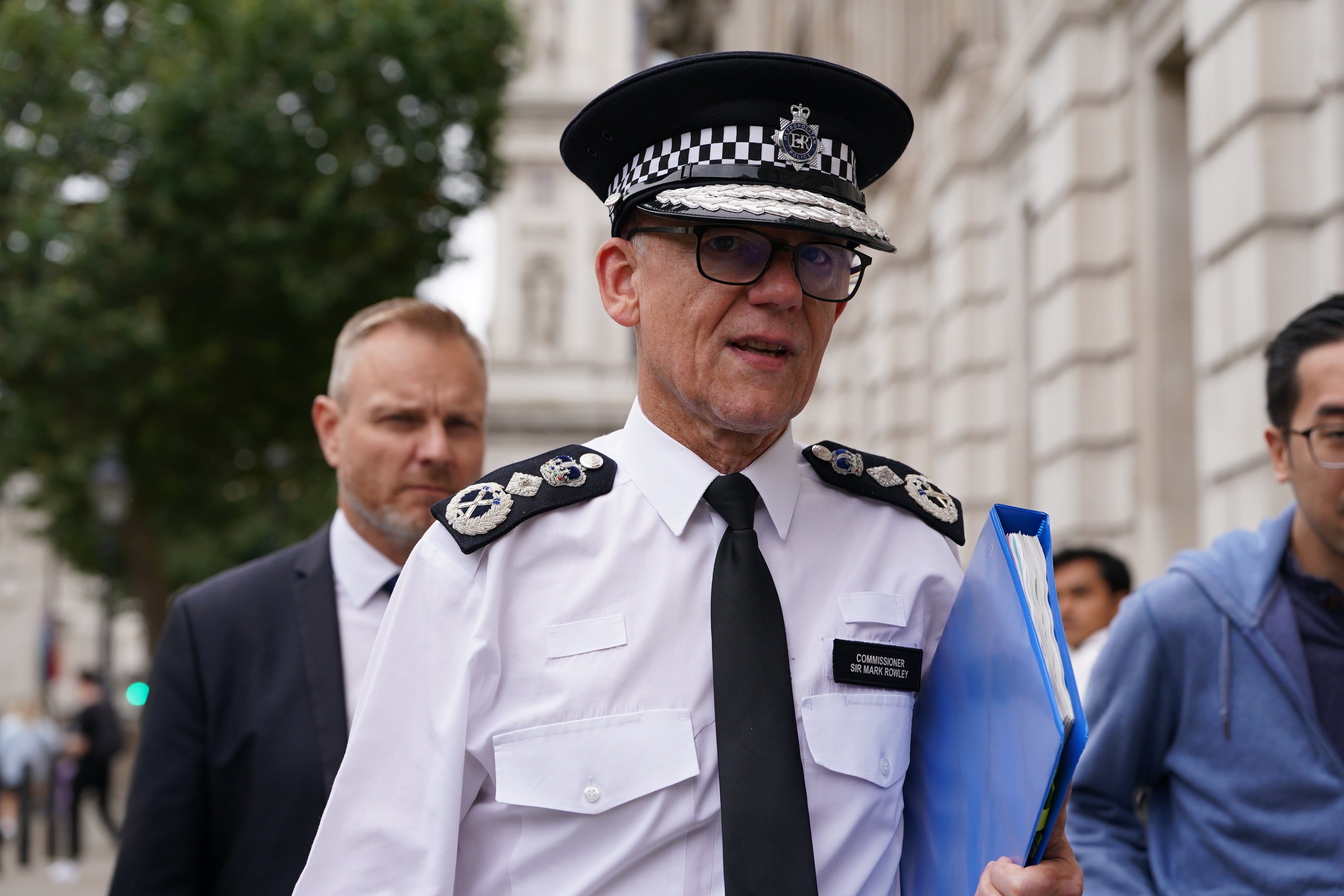Rogue officers who were sacked over allegations of domestic and sexual abuse could be reinstated and owed thousands in backpay if the Metropolitan Police loses a High Court challenge over vetting rules, a senior officer has warned.
The force is defending a judicial review brought by a sergeant whose vetting was revoked following a series of unproven complaints about his conduct, including rape and sexual assault. He denies the allegations and has not been charged with, nor convicted of, any offence.
Sgt Lino Di Maria argues the decision to revoke his vetting – which will likely lead to his dismissal – is unlawful and has challenged updated vetting procedures designed to root out rogue officers.
However assistant commissioner Laurence Taylor has warned the consequences will be “disastrous” if his legal bid is successful and could render the force powerless to strip unsuitable officers of their warrant card.
“It would put us in a hopeless position having to keep police officers who we don’t feel deserve or should hold the rank of constable,” he said.
In the worst-case scenario, it could also see the Met forced to reinstate those it has already sacked under the re-vetting scheme, called Operation Assure, and forced to pay them backpay.
The majority of those referred to Operation Assure were men identified in a ten-year review of historic allegations of sexual misconduct and domestic abuse made against officers, launched in the wake of a series of scandals, including the kidnap and murder of Sarah Everard by serving Met officer Wayne Couzens.

Of 107 officers and staff who have had their vetting withdrawn under Op Assure, so far 19 people have been dismissed and 19 have resigned.
Those dismissed include an officer who received multiple rape and sexual assault allegations from different women from 2011-23, which could not be proved to a criminal or professional misconduct standard. After his vetting was revoked and he was dismissed, the force continued to investigate and he was later charged, although the officer has since died.
Another officer was stripped of his vetting and booted out after he received numerous domestic abuse allegations and workplace complaints of sexual harassment.
A third was convicted of outraging public decency for committing an indecent act on a train. A professional misconduct panel had let him off with a final written warning but after he was referred to Assure his vetting was revoked and he was dismissed.
Commander James Harman, who leads Op Assure, said: “I think that’s a good example of how that is an officer who, with that conviction, could never apply to be in the Met.”
Commander Harman insists the process is legal, fair and in line with Collage of Policing guidelines.
“We think it’s a genuine process which is fair to the officers involved, whilst also being robust,” he said, noting 82 people have gone through the Op Assure process and had their vetting reinstated, while seven have successfully appealed a decision to revoke their vetting.
AC Taylor described system as “appropriate and proportionate” and said it was about identifying patterns of behaviour, not one-off examples.

Losing the right to use Op Assure would leave the Met forced to retain staff “with these really worrying allegations in their history”, he said, adding: “Our view is that is entirely unacceptable. The public would be horrified.”
It could also leave the force unable to remove officers deemed unsuitable due to financial pressures or criminal associations, he said.
Sgt Di Maria had his vetting removed in September 2023 and an appeal against this decision was refused. He now faces a “gross incompetence” hearing which will likely result in his dismissal, but he has launched a judicial review, claiming the process is not lawful.
In a two-day hearing at the High Court this week, lawyers for Sgt Di Maria challenged the Met’s decision on a number of grounds, including his right to a fair trial under Article 6 of the European Convention on Human Rights.
Sgt Di Maria’s counsel Kevin Baumber said professional misconduct hearings had found he had “no case to answer” in respect of the allegations made against him.
He said it was a concern that an officer could go through a “detailed” conduct procedure, which concludes that “they need not be dismissed”, only to be fired following an “internal management decision anyway”.
A judgment is due to be made at a later date.























+ There are no comments
Add yours